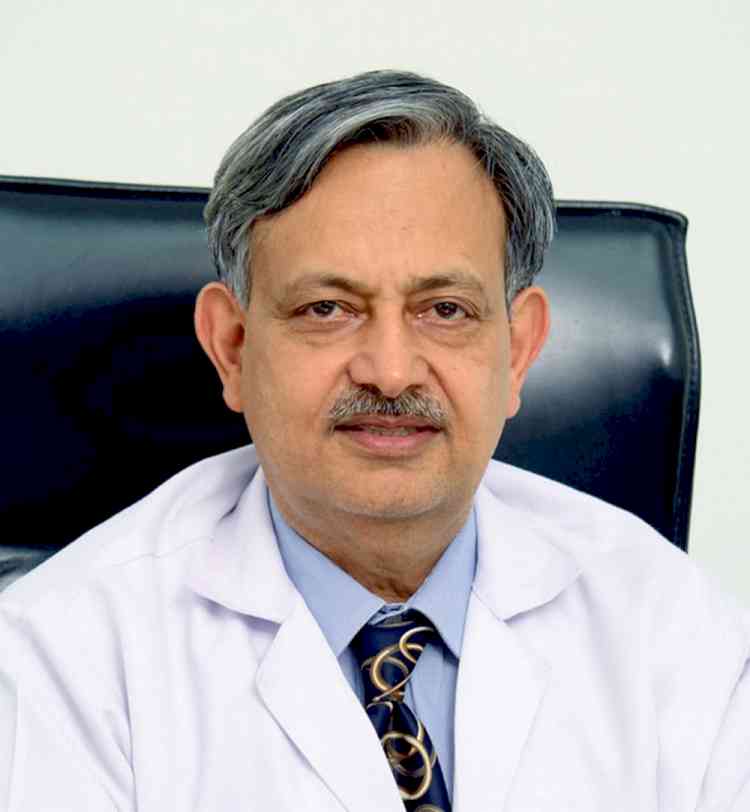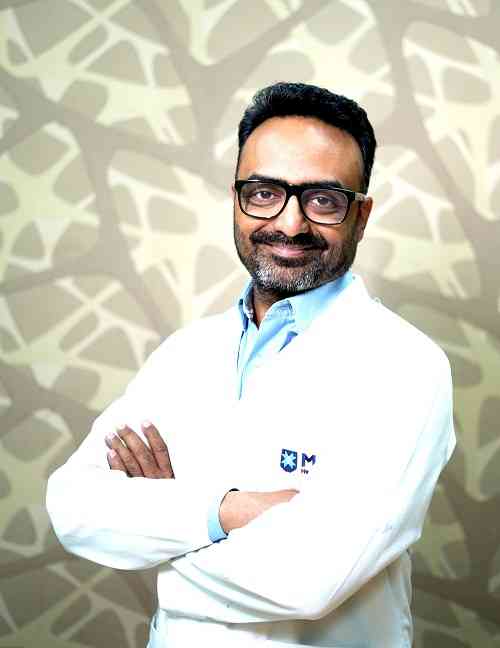35% of population in India suffers from fatty liver: Dr SK Sarin
As part of the 'Illness to Wellness' campaign, ASSOCHAM, an apex industry body, conducted a webinar on "Managing Liver Care" with the main objectives to cascade awareness and disseminate wisdom about managing liver care, reducing liver infections and eventually enhancing liver health to lead a healthier, happier and prosperous life.

New Delhi, Feb 18 (IANS) As part of the 'Illness to Wellness' campaign, ASSOCHAM, an apex industry body, conducted a webinar on "Managing Liver Care" with the main objectives to cascade awareness and disseminate wisdom about managing liver care, reducing liver infections and eventually enhancing liver health to lead a healthier, happier and prosperous life.
Dr Shiv Kumar Sarin, Padma Bhushan awardee, Head, Department of Hepatology and Director, Institute of Liver and Biliary Sciences, New Delhi, told the audience about the increasing number of fatty liver cases in the country and how they are linked to diabetes, kidney stones and rising heart disease rates.
"Thirty-five per cent of the population in India suffers from fatty liver," he added.
He explained that when lipids accumulate in the liver, it limits its insulin capability, and to compensate, the pancreas produces insulin, which is insufficient to cope with regular biological processes.
As a result, the body undergoes insulin resistance and a person develops pre-diabetic symptoms. He says that those fats start to enter the blood and get deposited in the arteries directing to the risks of heart stroke or attack. Ample evidence suggests that elevated Gamma-GT enzyme activity is associated with a higher risk of cardiovascular disease.
Dr Rajesh Kesari, Founder and Director, Total Care Control, Delhi-NCR, said liver is termed as the chemical factory of our body, therefore our liver must bear the brunt of our modern-day lifestyle. The role of the liver in maintaining health was known for ages -- but has once again caught attention as the liver is unable to handle the excess fat which is there in our diet and is becoming the reason for many diseases like diabetes, hypertension, atherosclerosis etc.
"Human liver is one of the most important organs in our body performing more than 500 vital functions," said Dr Sakshi Karkra, Head, Pediatric, Gastroenterology and Hepatology, Artemis Hospitals, Gurugram.
It performs many functions like detoxification of drugs, resisting infections by making immune factors, converting poisonous ammonia to urea, processing haemoglobin, protein, cholesterol and glycogen synthesis, regulating blood clotting, production of biochemicals necessary for digestion and excretion of bile which helps carry away waste products from the liver, she added.
She says that liver disease refers to any damage or disorder that limits the function of the liver. It can be genetic (inherited) or acquired. The symptoms range from
fatigue, irritability, headaches, difficulty in concentrating, vomiting, anxiety and in advanced stages causes yellowing of the skin and eyes (jaundice), itchy skin, swelling of the lower abdomen and dark urine.
"The liver can repair itself up to a certain point so damage can be reduced if liver disease is discovered at an early stage," she added.
Sharing his views, Dr Bhavin Bhupendra Vasavada, Surgical Gastroenterologist, Hepato Biliary and liver transplant surgeon, Shalby Multi-Specialty hospitals, said, "Liver has great regenerative power and can fight with the disease until it is damaged beyond repair. It is both a blessing and disguise, as due to some great regeneration capacity, symptoms are not seen unless damage is severe and generally when alarming symptoms are seen, liver transplant remains the only curative treatment. As a result, liver disease treatment should include screening, early identification and prevention. If hepatitis is identified early, there are numerous effective oral therapies available, and a transplant can be avoided."
The major preventive approaches are an emphasis on reducing alcohol addiction, a healthy lifestyle, exercise and obesity prevention.
"When a liver transplant is required, he says as an educated society, we should focus on expanding organ donor awareness and lowering the cost of treatment for liver transplants."


 IANS
IANS 








